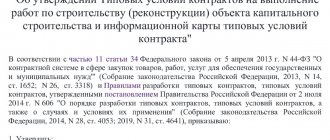The conclusion of a compensation agreement will mean the termination of the obligation that has arisen between the parties. It is used when the execution of contracts and other transactions in the manner originally agreed upon is impossible. For example, instead of collecting a debt under a loan agreement, the creditor accepts property, etc. from the debtor.
What is a compensation agreement and how to draw it up correctly? You will find answers to these questions in this article. Additional questions can be asked to the site’s on-duty lawyer – his assistance is free.
:
Compensation agreement
Example of a compensation agreement
Compensation agreement
Anapa June 18, 2021
We, the undersigned,
Smorchkov Valery Sergeevich, born on May 8, 1985, passport of a citizen of the Russian Federation series 11 17 number 1498625, issued on June 18, 2012 by the Department of the Federal Migration Service of Russia for the Krasnodar Territory in Gelendzhik, registration address: Russia, Krasnodar Territory, Anapa, Morskoy Avenue , d. 198, hereinafter referred to as “Debtor”, on the one hand, and
Limited Liability Company "Primula", OGRN 49533589684, location: Russia, Krasnodar region, Sochi, st. Kirova, 12, office. 109, represented by director Ramzan Vartanovich Akhmetov, acting on the basis of the Charter, hereinafter referred to as the “Creditor”, on the other hand,
and together referred to as the “Parties”, guided by Art. 409 of the Civil Code of the Russian Federation have entered into this agreement as follows:
- The parties agreed to terminate the Debtor’s obligation arising from the vehicle lease agreement No. 11/17 dated November 20, 2017, the subject of which is the provision for temporary possession and use of a KAMAZ brand/model vehicle, black, 2008, VIN A654K56O568, number there is no body, state registration number K437KV 49, due to the Debtor providing compensation in accordance with the terms of this Agreement.
- Compensation is provided in exchange for fulfilling the obligation to pay rent for the period from January 2021 to June 2021 in the amount of 157,000 (fifty seven thousand) rubles, including:
148,000 rub. – the amount of the principal debt in accordance with clause 3.2 of the Lease Agreement
9,000 rub. – the amount of the penalty in accordance with clause 3.4 of the Lease Agreement
- From the moment the compensation is provided, the Debtor's obligation specified in clause 1.2 of this Agreement ceases completely, including the obligation to pay the contractual penalty.
- The Debtor transfers to the Creditor the following property as compensation: a land plot with cadastral number 53:65:52646547:178, land category: lands of settlements, permitted use: for the operation of administrative and industrial buildings, with a total area of 110 sq.m.
- The cost of compensation (transferred property) is 157,000 (one hundred fifty-seven thousand) rubles.
- The property specified in clause 4 of this Agreement is transferred to the Lender within 5 calendar days from the date of signing of this Agreement under the Transfer and Acceptance Certificate. The ownership right to the transferred property arises with the Lender from the moment of state registration of this Agreement.
- Before signing this Agreement, the Lender became familiar with the condition of the property transferred as compensation and has no claims against it. The property is transferred free from the rights and claims of third parties, is not pledged, and is not the subject of claims.
- This Agreement comes into force from the moment it is signed.
- This Agreement is drawn up in 3 copies of equal legal force, one for each of the Parties, one copy for the registering authority.
- The costs of state registration of the transfer of ownership are borne by the Debtor.
- Details and signatures:
Director of Primula LLC
Akhmetov R.V. Smorchkov V.S.
New Plenum of the RF Armed Forces No. 6 on compensation: is everything good, or are there pitfalls?
The Plenum of the Supreme Court of the Russian Federation in Resolution No. 6 of 06/11/2020 “On some issues of application of the provisions of the Civil Code of the Russian Federation on the termination of obligations” (PP of the Supreme Court No. 6) set out separate clarifications regarding compensation, offset, novation, debt forgiveness, impossibility of performance, etc. .
As usual, any judicial interpretation is a reason to think about how the corresponding design works and what will (not) change?
In this post I would like to comment on the provisions on compensation, which are addressed in paragraphs 2-9 of the PP of the Supreme Court No. 6.
Point 2. Everything and always + point 9.
First. “The rules on compensation do not exclude that work will be performed, services provided, or other provision will be made as compensation (clause 1 of Article 407, Article 421 of the Civil Code of the Russian Federation).”
This means that the Plenum of the RF Armed Forces proposed the broadest possible understanding of the subject of compensation, using the term “property” in a meaning almost identical to the objects of civil rights (Article 128 of the Civil Code of the Russian Federation). This is quite possible, given the polysemy of the term “property” and the principle of discretion. According to this logic, anything that is considered a consideration can be compensation (Article 423 of the Civil Code of the Russian Federation).
The question is whether such an interpretation creates the risk of confusing compensation with novation?
Traditionally, in practice and in doctrine, taking into account the “moderate” interpretation of the text of Art. 409 of the Civil Code of the Russian Federation (“payment of funds and transfer of other property”), the subject of compensation recognized various things and rights, in particular, (in) divisible, (not) movable, (not) consumable), title to a thing without transfer of the thing itself, share in the right of ownership of a thing, various negotiable property rights, share in the management company, right of claim against a third party, exclusive rights to the results of RIA. With this approach, the difference between compensation (replacement of execution) and novation (replacement of an existing obligation with a new obligation - clause 1 of Article 414 of the Civil Code of the Russian Federation) was quite clear and corresponded to differences in legal structures.
According to the current Art. 409 of the Civil Code of the Russian Federation, the termination effect of compensation occurs no earlier than the execution is transferred (the concept of compensation as a real contract). On the contrary, the legal effect of a novation arises already by virtue of the conclusion of an agreement (the concept of novation as a consensual contract). Simply put, the process of creating/acquiring any property to provide as compensation by the parties is not regulated. Novation, on the contrary, presupposes the emergence of independent rights and obligations for the purpose of fulfilling a new obligation.
The explanation of the Plenum of the Armed Forces of the Russian Federation, it seems, would have been more accurate if the possible subject of compensation had indicated not just “performance of work”, “provision of services” (such terminology implies the emergence of a continuing obligation), but the provision of the result of work and services (emphasis on provision).
One can, of course, recall the previous edition of Art. 409 of the Civil Code of the Russian Federation before amendments were made to the Civil Code of the Russian Federation by Federal Law No. 42-FZ of March 8, 2015, in relation to which, in the practice of the Supreme Arbitration Court of the Russian Federation, an approach was formed to compensation as a consensual transaction, which transforms the previous obligation into an optional one and gives the debtor the opportunity to choose what kind of performance to provide (Clause 1 of the Information Letter of the Presidium of the Supreme Arbitration Court of the Russian Federation dated December 21, 2005 No. 102). And also look at paragraph 3 of the PP of the Supreme Court No. 6 (see below) and suspect the Supreme Court of the Russian Federation that it is trying to point out the absence of strict and insurmountable boundaries between consensual and real transactions, especially if we consider them through the prism of optional and alternative obligations.
At the same time, the point is not how right or wrong the RF Armed Forces are, but how accurate and understandable its explanations are and exclude confusion of different constructions.
Thus, since an incorrect phrase may well change the meaning of the agreement (they thought about compensation, but entered into a novation, and vice versa), when drawing up an agreement to terminate an obligation, it is better to once again check the terminology so that the parties understand what and how the previous obligation is terminated, coincided.
Second. The idea of the admissibility of concluding a compensation agreement at any stage of the existence of an obligation (before or after the delay), in relation to any requirements (main and/or additional), in any volume (in whole or in part) and in relation to any type of obligation (contractual and non-contractual, including return of what was performed under an invalid transaction) is not new and, given the freedom of contract, is fully justified.
It is curious that paragraph 9 of the Supreme Court No. 6 additionally states that “The expiration of the limitation period for the initial obligation does not prevent the conclusion of a compensation agreement. A compensation agreement concluded in writing after the expiration of the limitation period, depending on its content, may be qualified as an acknowledgment of a debt (clause 2 of Article 206 of the Civil Code of the Russian Federation).” In my opinion, it would be much more logical to say about this in paragraph 2 of the PP of the Supreme Court No. 6 in development of the general idea that a compensation agreement can be concluded in relation to any types of obligations, so as not to create the ground for possible speculation about Is there any additional meaning hidden in clause 9 of PP BC No. 6?
The reference to the expiration of the limitation period is a remedy for the debtor, which he has the right to either use or not use. Since the termination of an obligation by concluding a compensation agreement is the implementation of the will, including that of the debtor, the conclusion of such an agreement also means the debtor’s refusal to use the appropriate remedy.
In this sense, the reservation of the RF Armed Forces that an additional compensation agreement can be qualified as recognition of a debt “depending on the content” raises doubts in my mind. Because, based on the logic outlined above, it is difficult to imagine in what cases a compensation agreement will not simultaneously be an acknowledgment of the existence of a debt under the original obligation.
Third . The Supreme Court of the Russian Federation indicated that “If the terms of the agreement are unclear and it is impossible to establish whether the will of the parties was aimed at terminating the obligation in whole or in any part, the interpretation of the agreement is carried out in favor of the fact that the original obligation is terminated in full, and additional requirements for it are also terminated, including the obligation to pay a penalty.” The proposed version of interpretation, taking into account the undeveloped rules on the interpretation of contracts in general, is understandable and ensures stability of turnover. If something has stopped, then in its entirety and in its entirety, no matter what it is expressed in.
At the same time, such an approach creates a risk that in the event of a dispute, the courts will not understand the intricacies of certain formulations and “get to the essence of the parties’ wishes,” especially if it is necessary to study not only the text of the agreement, but also the accompanying correspondence.
Accordingly, it is practically useful, when agreeing on the terms of compensation, to draw up something similar to a checklist (what requirements are there, to what extent, etc.) in order to record the agreements in strict accordance with the will of the parties.
Clause 3 and 5. Compensatory vs (?) optional vs (?) alternative obligation.
The Supreme Court of the Russian Federation indicated that “A compensation agreement may provide for the provision of compensation both immediately at the time of concluding such an agreement and in the future. If the moments of concluding an agreement and providing compensation do not coincide, an optional obligation arises between the parties, according to which the debtor has the right to both fulfill the original obligation and provide compensation, which the creditor is obliged to accept (Articles 3082, 406, 409 of the Civil Code of the Russian Federation).”
It seems that this is a clear return to the concept of compensation as a consensual transaction, which was formed before the amendments to Art. 409 of the Civil Code of the Russian Federation in 2015 (see Information letter of the Presidium of the Supreme Arbitration Court of the Russian Federation dated December 21, 2005 No. 102). This is confirmed by the indication contained in paragraph 5 of the Supreme Court No. 6 that in the regime of an optional obligation, the creditor, before providing compensation, has the right to demand only the subject of performance that is provided for by the original obligation. As a consequence, if the debtor does not fulfill the original obligation and does not provide compensation, the creditor can only use those measures of protection that correspond to the original subject of performance (since it is precisely this that the creditor can demand, but cannot insist on the transfer of compensation).
In this sense, it becomes clear why the RF Armed Forces additionally indicate that “the parties also have the right to enter into an agreement, which gives rise to the right of the creditor, at his choice, to demand either the fulfillment of the initial obligation or another provision specified in the agreement. In this case, the rules on alternative obligations (Articles 3081, 320 of the Civil Code of the Russian Federation) apply to relations for the fulfillment of an obligation.”
At the same time, since in the current version of Art. 409 of the Civil Code of the Russian Federation, compensation is nevertheless formulated as a real transaction; the Supreme Court of the Russian Federation has to give priority to interpretation in favor of an optional obligation if there are any doubts: “The will of the parties to choose an optional or alternative obligation is established by interpreting the terms of the relevant agreement (Article 431 of the Civil Code of the Russian Federation ). If there are doubts, interpretation is carried out in favor of the parties choosing an optional obligation (clause 2 of Article 3201 of the Civil Code of the Russian Federation).”
In practice, this means that if a creditor enters into an agreement for compensation that can be transferred in the future, and is really interested in receiving it, the text of the agreement must clearly indicate the alternative nature of the obligation.
Clause 4. Can the deadline for providing compensation block the provision of the main obligation?
The Plenum of the Supreme Court of the Russian Federation indicates that “If an agreement on compensation is concluded, the creditor does not have the right to demand fulfillment of the initial obligation before the expiration of the period established by the parties for providing compensation, unless otherwise established by such agreement.” Moreover, “in the absence of an agreed period for providing compensation as fulfillment of an optional obligation, the debtor has the right to provide compensation within a reasonable period from the date of conclusion of the agreement.”
Personally, such an explanation seems to me to contradict not only the current version of Art. 409 of the Civil Code of the Russian Federation, which enshrines the concept of compensation as a real transaction, but also to the explanations of the Supreme Court of the Russian Federation itself, contained in paragraphs 3 and 5 of the PP of the Supreme Court No. 6 on the priority of qualifying the compensation agreement, if it is to be transferred in the future, as an optional obligation.
It turns out that by default the creditor's right of claim under the original obligation is actually blocked for a certain period of time. That is, there is a right, but it seems that it is not there. Moreover, there is also no right to demand the transfer of compensation.
If the compensation is concluded in relation to an already overdue obligation, such an explanation by the RF Armed Forces looks even more strange. Especially when the Supreme Court of the Russian Federation indicates that if the debtor provides compensation in arrears, then the creditor can refuse it and demand that the original subject of performance be provided again. That is, by default, when concluding a compensation package, the debtor is in a more privileged position and receives not one, but two bonuses: not only the opportunity to provide compensation, but also the opportunity not to provide anything for a certain period of time (until the deadline for providing compensation comes or until it expires). a reasonable period of time, the duration of which may, in addition, become an independent subject of dispute). It is probably also impossible to collect late fees during this period of time.
In my opinion, it would be more logical to assume that restrictions of this kind should be provided for by agreement of the parties and be a consequence of the direct expression of the will.
Taking into account the current version of the clarifications of the RF Armed Forces, it turns out that when a creditor does not want to be temporarily deprived of the opportunity to exercise his rights at least under the initial obligation, if he agreed to compensation that may be provided in the future, then this must be indicated directly in the compensation agreement , and also unambiguously state when and what penalties and what to collect for, in order to avoid unnecessary legal disputes.
Point 6.7. Quality of compensation.
“If the proposed compensation does not comply with the agreement of the parties, and in the absence of special instructions in the agreement, with the usually presented requirements, the creditor has the right to refuse to accept the improper compensation offered by the debtor and take advantage of the remedies established by law or contract in case of violation of the original obligation. If hidden shortcomings are discovered in the compensation accepted by the creditor, he has the right to take advantage of the remedies provided for in the rules of the agreement corresponding to this provision, unless otherwise follows from the essence of the obligation or the subject of the provision. For example, if property of inadequate quality was provided as compensation under a compensation agreement, creditor 4 can use the remedies specified in Article 475 of the Civil Code of the Russian Federation, or other remedies depending on the violation committed (for example, Articles 460, 461 of the Civil Code of the Russian Federation), if otherwise does not follow from the essence of the relationship regarding the transfer of compensation.”
This explanation is quite logical. The norm of Art. 409 of the Civil Code of the Russian Federation does not really regulate the quality of compensation. If the parties have not separately resolved this issue by agreement on compensation, then in the case of acceptance of compensation, rules similar to the responsibility of the seller in the sale and purchase should be applied. In case of refusal of a low-quality compensation, the protection measures provided for the original obligation remain.
At the same time, it would be worth adding that if the subject of compensation is services and work, then, within the meaning of the law, the rules on the liability of the contractor/service provider should also apply. Considering that assessing the quality of services can be complicated by many nuances, it is advisable to specify expectations from services in the compensation agreement.
Clause 8. More strict form.
Clause 8 of PP BC No. 6 does not raise any questions and fully complies with the established rule on the priority of a more strict form.
“In relation to the initial agreement and the agreement on the basis of which compensation is granted, different requirements for the form may be established, in particular, due to the fact that the agreement arising between the parties falls under the characteristics of an obligation of a different type or in relation to transactions with property that is transferred as compensation, special requirements for the form have been established. In this case, the most stringent of these rules on the form of the transaction are subject to application to the compensation agreement (clause 1 of Article 452 of the Civil Code of the Russian Federation). For example, if shares in the authorized capital of a limited liability company are provided as compensation, then the compensation agreement must be notarized.”
Thus , the clarifications of the RF Armed Forces, in my opinion, although they provide participants in the turnover with greater opportunities to use the compensation structure, but without a detailed and conscious elaboration of the text of the agreement, they can actually deprive the creditor of what he was counting on when concluding the compensation agreement. Therefore, the main thing is attentiveness.
Compensation agreement form
The legislator does not impose separate requirements on the form of such transactions. Therefore, the general rules apply.
It is always preferable to make a document in writing, even if the law allows for oral form. If the subject of compensation is real estate, the transfer of ownership is subject to registration in Rosreestr. If the share is in ownership, we recommend that the transaction be certified by a notary in order to avoid the need to prove the fact of the transaction in the proper form in case of going to court.
What can be provided as compensation? Subject of compensation
The following may be the subject of compensation:
1. Property of the debtor. The debtor can transfer movable and immovable property as compensation, for example, a car, a dacha, an apartment, a plot of land, goods, securities - both documentary (for example, bills) and uncertificated (shares, bonds), other property;
2. Property rights:
- obligatory (the right of claim against a third party),
- corporate (for example, a share in the authorized capital of an LLC),
- exclusive (right to the result of intellectual activity).
3. Works, services or other provision
In paragraph 2 of the Resolution of the Plenum of the Supreme Court of the Russian Federation dated June 11, 2020 N 6, it is clarified that “the rules on compensation do not exclude that work will be performed, services provided or other provision will be made as compensation (clause 1 of Article 407, Article 421 of the Civil Code of the Russian Federation) .
Parties and subject of the compensation agreement
The parties to the compensation agreement are the parties who are bound by the main obligation. If a third party appears in such an obligation (guarantor, assignor of the assignment of the right of claim, etc.), such persons enter into a transaction. Before signing the document, make sure you have a power of attorney from the legal entity or for signing.
The law calls the provision of funds or property as compensation. At the same time, it can also be services or work.
Compensation. Essence (example)
For example, Ivanov owes Petrov 1,000,000 rubles under a loan agreement. Ivanov has no money, but the repayment period under the loan agreement has expired. Petrov has the right to file a lawsuit against Ivanov and obtain a court decision on collection, which will result in the initiation of enforcement proceedings, seizure and foreclosure of the debtor’s property.
However, such consequences can be avoided. Ivanov and Petrov have the right to enter into a compensation agreement, which stipulates that the obligations from the loan agreement are terminated by the provision of compensation to Petrov by Ivanov (i.e. property, including property rights, which include obligatory, corporate and exclusive rights).
Compensation for the debtor is a kind of payment for refusal to fulfill an assumed obligation, and for the creditor it is compensation received in return for the fulfillment of the obligation promised by the debtor.
Compensation is a modern analogue of the classic basis for termination of an obligation - provision instead of performance (datio in solutum).
How to draw up a compensation agreement
The compensation agreement must contain:
- reference to the main obligation that is being terminated. Not only the details of the contract, but also a specific obligation - payment of payments, their amount, transfer of property, etc. Unless otherwise indicated in the compensation document, the debt is considered to be repaid in full. Therefore, if the compensation covers the obligation only in part, this should be explicitly stated in the text of the agreement;
- repayment/non-repayment by compensation of contractual or legal penalties, other sanctions for delay or failure to fulfill the main obligation. Do not indicate, the practice comes from termination and such “additional” obligations;
- date of execution of the compensation agreement: when property or money should be transferred, work performed or services provided, in what order.
The compensation agreement may provide for its execution in parts. For example, don’t transfer money in full at once. Then the main obligation also does not terminate immediately, but in proportion to the transfer. But if the compensation agreement does not provide for such partial fulfillment, therefore, the creditor has the right to demand execution of the agreement in full and in the agreed manner.
Definitions of the term “compensation”
Here are several options for defining the concept of “compensation” from different dictionaries.
Compensation is a payment, a reward for giving up something. (Explanatory Dictionary of Efremova. T. F. Efremova. 2000).
Compensation - (eng. compensation for termination of contract) - in the civil law of the Russian Federation, a material benefit provided by the debtor in exchange for the fulfillment of an obligation in kind to the creditor (payment of money, transfer of property, etc.). O. is one of the grounds for termination of an obligation. (Encyclopedia of Law. 2015).
Compensation - in civil law, certain material benefits (money, property, etc.) provided by agreement of the parties in exchange for the fulfillment of an obligation. One of the ways to terminate obligations. The amount, terms and procedure for providing O. are established by the parties. (Large legal dictionary. - M.: Infra-M. A. Ya. Sukharev, V. E. Krutskikh, A. Ya. Sukhareva. 2003).
Compensation is a sum of money or property value that one person must give to another person in order to be released from fulfilling his obligations to that person. (Raizberg B.A., Lozovsky L.Sh., Starodubtseva E.B.. Modern economic dictionary. - 2nd ed., revised M.: INFRA-M. 479 p.. 1999).
Grounds for termination of obligations
In accordance with Art. 407 of the Civil Code of the Russian Federation and other provisions of the law, legal grounds entailing termination of obligations are:
- a party’s demand, if termination of this demand is possible by contract or law;
- by agreement of the parties;
- on other grounds provided for by law, other legal acts or agreement.
As can be seen from the last paragraph, this rule does not provide specific reasons, which means there are many options. According to the position of the Supreme Court of the Russian Federation, set out in the Resolution of the Plenum of the Supreme Court of the Russian Federation dated June 11, 2020 No. 6, the list of grounds is not exhaustive, and the parties can provide any ground for termination, even if it has never been previously applied by other participants in civil law relations and not was enshrined in any legal acts.
Analyzing the legislation, we can identify several grounds, enshrined in individual articles of the Civil Code of the Russian Federation, on which the obligation can be terminated:
- Fulfillment of an obligation (Article 408 of the Civil Code of the Russian Federation). It means nothing more than the fulfillment of the conditions stipulated by the contract in full.
- Debt forgiveness (Article 415 of the Civil Code of the Russian Federation), that is, the release of the debtor from an obligation with the consent of the creditor.
- Novation (Article 414 of the Civil Code of the Russian Federation), that is, the drawing up of a new agreement (obligation) between the same parties.
- Impossibility of performance (Article 416 of the Civil Code of the Russian Federation) – the occurrence of such circumstances due to which it is impossible to fulfill the terms of the contract.
- offset (Article 410 of the Civil Code of the Russian Federation) - is made at the request of a party when a counterclaim, homogeneous in nature, is declared.
These are the most common grounds on which obligations are usually terminated. Let's take a closer look at one more thing.
Termination of obligations by providing compensation
In the civil law sense, “compensation” means the provision of funds or property on account of an obligation - this concept is reflected in Art. 409 of the Civil Code of the Russian Federation. Compensation can terminate obligations, both basic and additional, both completely and partially.
For example, the transfer of a certain amount can cover only the “body” of the loan or only the interest for a certain period; the rest of the obligation continues to be fulfilled on the original terms. In another option, one amount can pay off the entire debt.
At its core, compensation is a kind of transaction that provides for payment for refusal to fulfill an obligation to one degree or another. Such a transaction is formalized in a separate agreement.
For example , according to the agreement, the creditor has the right to interest on the loan, and the debtor transfers the car to him in exchange for the amount he is obliged to pay. Thus, the performance is replaced by another item at the discretion of the debtor, but in agreement with the creditor. The lender's consent is mandatory, since a unilateral decision on the type and amount of compensation contradicts the basic provisions of civil law on the protection of interests (maybe the creditor does not need the car and he does not agree with this choice of execution method).
Usually, by providing compensation, contractual obligations (most often a loan) are terminated, but this method of termination is also acceptable in non-contractual relations. For example, on a demand for recovery due to unjust enrichment or on the return of what was received due to the invalidity of a transaction. In such situations, compensation is possible if the interests of third parties are not violated.
Violations of third-party interests are unacceptable in any type of compensation, otherwise there is grounds for invalidating the agreement. In civil and arbitration practice, such court decisions are not uncommon. For example, the statements of the plaintiffs, shareholders, challenging the provision of compensation in the form of 90% of all assets to one of the co-founders, were satisfied by the court. At the same time, the decision indicated that when providing compensation, the rights of other shareholders were violated.
The replacement of the subject of the obligation can be absolutely anything if both parties agree with it. Instead of one product, you can transfer another product with an additional payment, or two other goods, as well as real estate, etc. There are countless examples of compensation in civil law.
Question: Can work or services be used as compensation?
Yes, this possibility was directly explained by the Supreme Court of the Russian Federation in paragraph 2 of the above-mentioned Resolution of the Plenum.
For example , under an agreement for the supply of goods, instead of delivery, money is paid or the goods are delivered partially with a commensurate surcharge; under an agreement for the purchase and sale of real estate in installments, the last payments are replaced by repairs to the premises; under a loan agreement for the amount of the unpaid debt with interest, equipment is transferred to the lender, etc.
While providing the parties with fairly extensive opportunities to independently decide on the proportionality of compensation, one should not forget about the legal nature of the main obligation. The agreement should not contradict it based on legal meaning and reasonableness. For example, an agreement on compensation in exchange for alimony cannot be recognized as legal if it involves the provision of a certain amount in exchange for the obligation to support and raise a child. Here, the legal nature of a non-property obligation is inextricably linked with the identity of the alimony recipient, therefore it cannot be stopped by paying a single amount.
Compensation should be distinguished from innovation - we wrote above about it as an independent method of terminating an obligation. The difference is that in novation, termination occurs in connection with the conclusion of a new obligation, while an agreement on compensation does not give rise to a new obligation, but only changes the conditions of the previous one .
Question: Is compensation always proportionate to the volume of the original obligation?
As a rule, the creditor agrees to accept “at least something” of value, so most often it is far from proportionate. This discrepancy is especially obvious in cases of bankruptcy of individuals - the credit institution agrees to a compromise to accept the compensation and accept the proposal of the bankruptcy trustee, so as not to delay the already lengthy procedure. The procedure is complicated by the mandatory approval of the proposal by a meeting of all creditors, among whom there may be those who will not approve the transaction.
Benefits of the agreement
In some situations, compensation is one of the optimal, most comfortable ways to solve a debt problem:
- The parties solve the problem quickly , without wasting time on proceedings, sorting out relationships, or proving that they are right. There is no need to go to court.
- Both sides will be able to protect their interests in this way . The borrower will get rid of the debt, and the lender will receive compensation for the money borrowed.
- The parties will have no complaints against each other, which will allow in the future, if not to cooperate, then at least to communicate at a normal level.
Judicial practice on compensation
The experience of judicial proceedings on JI is constantly summarized, which then results in clarifications and determinations by the Supreme Arbitration Court of the Russian Federation. The most frequently asked questions are of interest.
How is compensation different from innovation?
Such methods of changing obligations as compensation and innovations are quite close in meaning (Article 414 of the Civil Code of the Russian Federation). However, these procedures have significant differences:
- The essence of the transaction. The CO provides for the complete termination of the obligation through the transfer of compensation and the subsequent termination of relations between the parties. The novation agreement (NA) establishes the replacement of one obligation with another, new obligation. In other words, the relationship between the parties does not end, but only changes its form, providing for other legal consequences.
- Termination period of the obligation. It occurs at the moment of transfer of compensation and only by agreement of the parties can occur immediately after signing the document. In the case of SN, the previous contractual obligation always terminates after the conclusion of the agreement, because replaced by innovation.
- Consequences of non-fulfillment of the agreement. According to the CO, if the debtor fails to fulfill his obligations to transfer compensation, the creditor has the right to demand fulfillment of the obligation under the original agreement. In case of SN, this right is lost. The creditor can only demand from the debtor the fulfillment of a new obligation.
When concluding an agreement, the parties must clearly understand the differences between these procedures, because they give rise to different legal consequences.
Compilation requirements
Various debt obligations arise between individuals and legal entities. It is possible not only not to repay the monetary debt, but also not to fulfill the order or services formalized by the contract. Therefore, compensation for an apartment or house must be drawn up indicating in the contract the specifics of the debt and what is provided in return.
The real estate, the provision of which is used to pay off the debt, is described in detail, indicating those characteristics and qualities that would allow it to be identified if necessary . In the text of the compensation agreement, you must indicate the fact of the transfer of real estate to pay off the debt and provide a link to the paper that can confirm this fact.
ATTENTION! The contract should also indicate whether the price of the property covers the amount of debt or not; this is important information. Repayment of a claim by the provision of real estate is permitted by law, and the debt can be repaid immediately or in parts.
Before drawing up a compensation agreement, both parties should review the debt repayment period in the loan agreement. If the period does expire or has expired, the lender is convinced of its right to demand the return of the borrowed funds. When repayment dates have not yet arrived, the debtor has time to find a solution to the problem; he may not need to give up the property.










